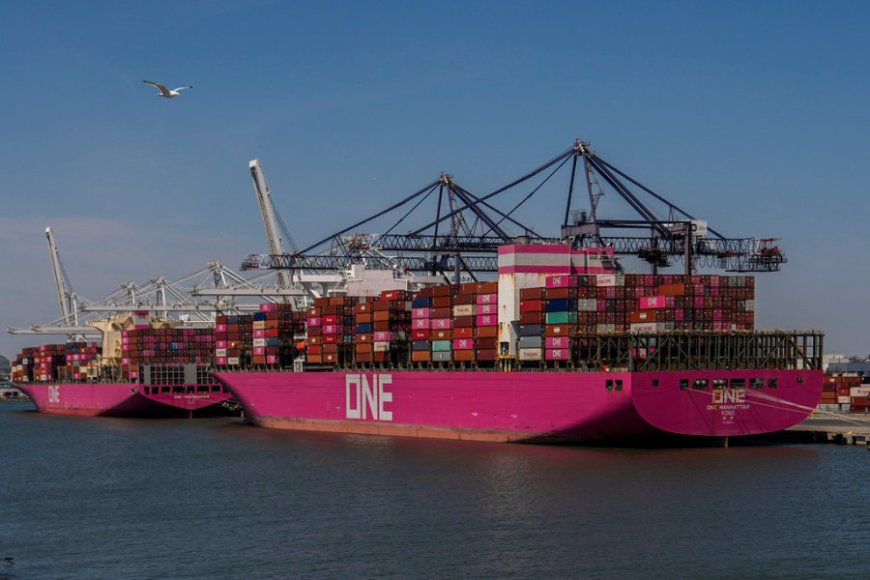South African citrus growers face uncertainty amid proposed 30 percent US tariffs
The impending 30 percent tariff on South African citrus imports to the U.S. threatens the livelihoods of South African citrus farmers, as it could lead to food inflation and a disruption in the supply chain.

The winter months in South Africa's Olifants River Valley are cold, wet and green. There are waterfalls in the nearby Cederberg and Winterhoek mountains, and the landscape below is blanketed by citrus orchards. Surrounding the town of Citrusdal, farmhouses and packhouses dot the landscape, defining one of the agricultural jewels of South Africa's Western Cape province.
But this winter is very different from previous ones. When I speak to the orchard workers, packhouse managers and various technicians on our family's farm, their concern is clear. I myself, an eighth generation citrus grower, am deeply worried about the future of our community. Storm clouds are on the horizon.
On July 7 the U.S. announced a planned 30 percent tariff on South African imports starting Aug. 1. This came after no final trade deal could be reached between South Africa and the U.S. following the Trump administration’s reciprocal tariff announcement of April 2.
Our valley shows how the tariff turmoil can have extremely disruptive consequences. The local citrus farms have proudly been exporting world-class fresh citrus to the U.S. for decades. Especially the mandarins and oranges produced here finds its way onto many U.S. store shelves. American consumers have started to develop a pronounced taste for South African citrus. Since 2017 our exports have almost doubled. The looming 30 percent tariff now threatens these exports. It would make our citrus completely uncompetitive in the U.S. This would not only wreak economic havoc in our community, it would have negative consequences for the U.S. citrus consumer as well.
Organizations such as the Citrus Growers' Association of Southern Africa still believe a mutually beneficial trade deal between the U.S. and South Africa is possible, but time is on nobody's side, with the Aug.1 deadline around the corner.
A practical option for consideration by the U.S. would also be to exempt seasonal fresh produce from these tariffs. Seasonal fresh produce holds a unique space within the current trade turmoil, and an exemption makes sense. Seasonal produce is not like a product produced year-round in a factory. Citrus cannot be "in-sourced." South Africa, as a counter-seasonal producer, does not threaten U.S. citrus growers or U.S. jobs. In fact, our produce sustains demand when U.S. citrus is out of season, which benefits U.S. growers when we "hand over" consumers at the end of our season, around October.
We also add unique varieties to the U.S. market, significantly increasing consumer choice. These varieties cannot easily be replaced by our competitors, such as Chile, Peru and Australia, even though they are not facing tariffs as high as we are.
Disturbing the supply of citrus to the U.S. could also lead to an increase in price for the U.S. consumer. This type of food inflation has consequences. With citrus — a main source of Vitamin C and many other nutrients — there is a health dimension to take into account as well. We help keep America healthy.
The middle of the 2025 citrus season has just been reached. Fruit is being picked, packed and shipped on our farm. Our conveyor belts are humming and the trucks are leaving for the Port of Cape Town, 176 kilometers to the south. In total, South Africa planned to send over 7 million 15-kilogram cartons of citrus to the U.S. this season, but if the tariffs are implemented on the Aug. 1, we will have to deal with a devastating new reality.
Fruit is usually grown for specific markets — meaning everything, from the choice of variety to sizing, from required plant health protocols to the timing of the picking, is market-specific. Because of this, it is not as simple as diverting citrus to another market. Even if some diversion could be managed, increasing supply to other countries could oversupply those markets and collapse the price, with a knock-on effect on the entire citrus industry.
Either way, a 30 percent tariff means hard times ahead for our community. South Africa struggles with high levels of unemployment. The local fear is that a trade setback of this size could tip Citrusdal and the entire Cederberg municipality into extreme poverty and instability. The effect this would have on the already high levels of violent crime in our province is terrible to contemplate.
But the effect is, once again, not only local. South African citrus producers have built up relationships and networks in the U.S. over decades. The tariffs would also mean immense uncertainty for stakeholders in the U.S. fresh produce chain, including logistics. While 35,000 jobs are directly dependent on U.S. citrus exports in South Africa, the Citrus Growers' Association of Southern Africa estimates that almost 20,000 jobs up and down the supply chain in the U.S. are in some way connected to the U.S.-South African citrus trade.
The Olifants River Valley is staring down a completely disrupted citrus season in the face. We have weathered floods, pests, logistical crisis and even political unrest — always securing a supply of high-quality citrus to the U.S. during their summer months. Unless a trade solution is found soon, this winter's storm could very well be the one we'll not weather.
Gerrit van der Merwe is a citrus grower in Citrusdal and the chairman of the Southern African Citrus Growers' Association.
What's Your Reaction?























